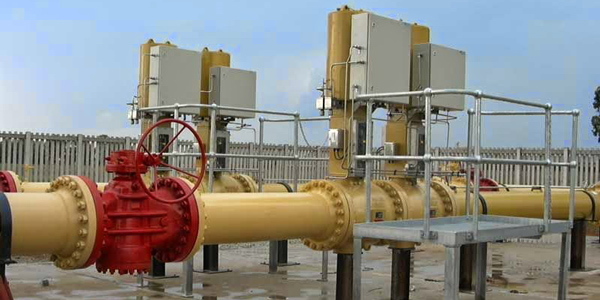By Michael Kuser
Critics are attacking the motives of New England’s major utilities, which last month asked FERC to clarify its July 2 order denying an ISO-NE request to waive certain Tariff provisions to keep Exelon’s Mystic generating plant running.
The RTO filed the request after Exelon said in March that it would retire the 2,274-MW plant when its capacity obligations expire on May 31, 2022. (See NEPOOL Debates Fuel Security, Cost Allocation.) In rejecting the request, the commission ordered ISO-NE to revise its rules to allow cost-of-service agreements for plants needed to address fuel security issues (ER18-1509).
On Aug. 1, National Grid and Eversource Energy, on behalf of their electric distribution companies (EDCs), filed a motion for clarification and expedited action on the commission’s waiver order.
The utilities said the commission “must clarify that the central purpose of ISO-NE’s July 1, 2019, filing of permanent Tariff revisions is to assure that New England adds needed new infrastructure to address the fuel supply shortfalls and associated threats to electric reliability.”
In comments filed with FERC, critics of the EDCs’ request were blunt in their opposition.
Massachusetts Attorney General Maura Healey on last week submitted an answer to what she termed the EDCs’ “self-serving” motion.
“Eversource and National Grid — both of whom could profit significantly from potential investment in pipeline infrastructure in the ISO-NE region — encouraged the commission to address the issues outlined in the waiver petition by mandating ‘investment in new infrastructure — in the case of New England, namely natural gas pipeline capacity,’” Healey said.
Eversource and National Grid are co-developers with Spectra Energy Partners on the Access Northeast project, a proposed $3.2 billion expansion of the Algonquin Gas Transmission pipeline in New England. (See DC Circuit Denies Rehearing on Algonquin Pipeline.)
Procedural Grounds
The Environmental Defense Fund (EDF) filed comments asserting that “FERC should reject the EDCs’ motion on procedural grounds alone. … The commission is not obligated to accept a filing solely based on the party-bestowed title. Instead, FERC examines the substance of the pleading.”
EDF said the utilities correctly identify a fundamental misalignment between the gas and electric markets, but that their proposed cure would exacerbate the disconnect.
“Imposing long-term financial obligations on captive ratepayers for costly long-lived infrastructure would contravene the commission’s pro-competition regulatory model and upset the price signals sent by a rational market, undercutting the investment expectations upon which billions in recent energy infrastructure was underwritten,” the group said.
EDF also argued the utilities are seeking to impede that stakeholder process, saying the RTO “has already refined its thinking on fuel security issues, revising its nomenclature from ‘fuel security’ to ‘energy security.’ This is an important recognition of the role that resources such as demand response, variable energy resources and storage can provide. The [utilities] give short shrift to these alternatives, summarily dismissing their potential contributions.”
NextEra Energy Resources also filed an answer saying the utilities’ motion “is a procedurally impaired request for rehearing or complaint and seeks a remedy that is beyond the commission’s statutory authority under the Federal Power Act.” The EDC proposal would undermine the role of ISO-NE as a neutral market operator and “result in New England wholesale energy market outcomes that are unjust and unreasonable,” the company said.
The Conservation Law Foundation contended that the EDCs cited no legal error or new facts but nonetheless requested “major additional — and quite novel — determinations of law and fact about which the commission has received no argument or supporting evidence.”
The CLF contested the utilities’ assertion that natural gas pipeline constraints are the cause of the fuel security situation in New England, citing testimony of ISO-NE Vice President of System Operations Peter Brandien, who said fuel supply issues result from a broad set of operational concerns and factors that are potentially responsive to a broad range of market solutions that the RTO and its stakeholders are only now beginning to explore and discuss.
‘Expensive Approach’
“In addition to not disclosing their interest in the Access Northeast project, the EDCs also do not disclose the significant body of evidence submitted in past state proceedings on the need for added pipeline capacity, which is far from conclusive,” NextEra said.
The company said that if the potential need for new pipeline capacity is limited to a few peak days each year, “as projected by the Eversource EDCs’ own expert,” the proposed new pipeline capacity would be “a very expensive approach to addressing a winter peak resource sufficiency concern, with the Eversource EDCs’ expert projecting a $526 million annual cost, after taking into account the return on the capital investment and [operations and maintenance] costs annually to operate the capacity.”
The New England Power Generators Association filed an answer calling “absurd” the utilities’ contention that long-term cost-of-service contracts are a form of market design improvement.
“The EDCs’ requests for findings are outside the scope of this proceeding and are more properly styled as a complaint or request for rehearing rather than a motion for clarification,” NEPGA said.
The commission ordered improvements to the market design and reaffirmed its support for market solutions but “provided no further direction with respect to the longer-term market improvements, much less that they include long-term pipeline capacity contracts,” NEPGA said.
Healey asked the commission to summarily dismiss the clarification motion and see it “for what it is — a bald attempt by monopoly utilities that stand to profit from new pipeline infrastructure trying to saddle electric ratepayers with the costs of a pipeline that private investors are unwilling to fund.”




